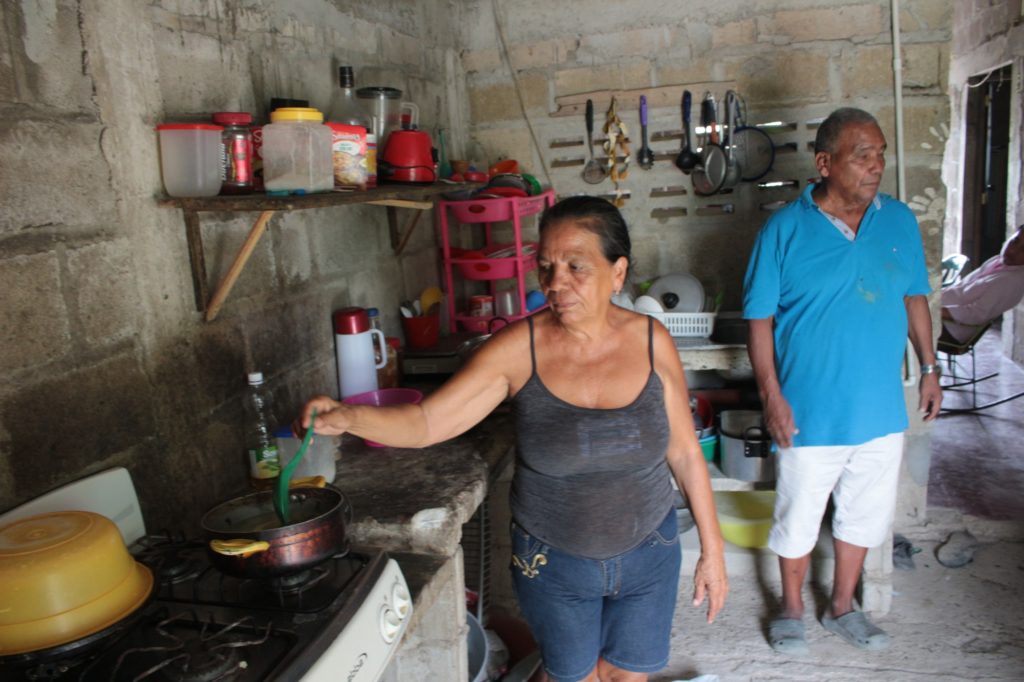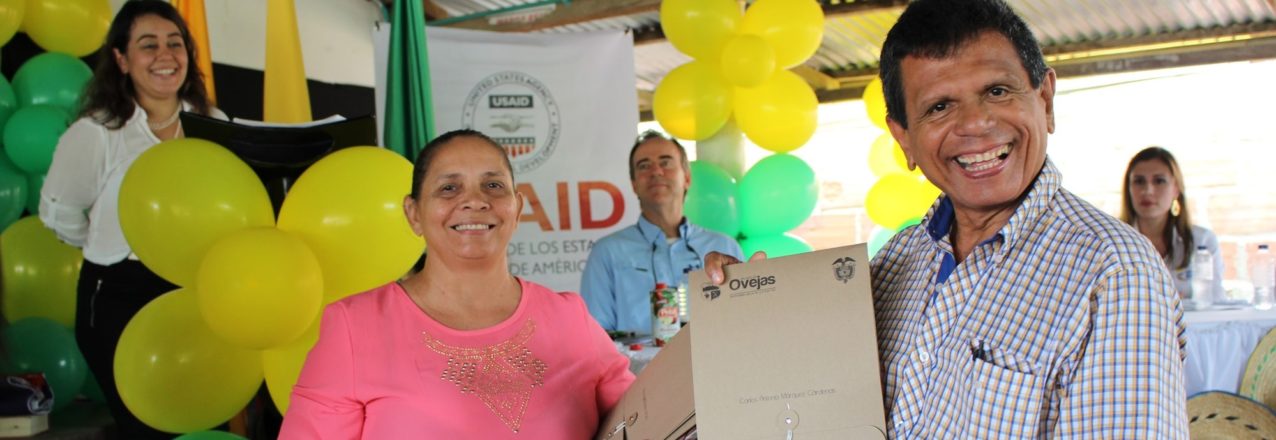By Land and Rural Development Program in Colombia
A municipal land office in Ovejas is giving local government a role to play in land administration.
For 72-year-old Glenys Mariela Salazar, retirement has not made life easy. A victim of Colombia’s armed conflict, her main occupation for the last 20 years has been survival. In 2001, paramilitary gangs and a bloody massacre drove her and her family from their home in Salitral, a small village in the Montes de María region of northern Colombia. She left with 10 children between the ages 3 and 16. She and her husband abandoned their business, a billiard table in the village’s main plaza, forever.
Like thousands others from the region, they ended up in the town of Ovejas, Sucre, occupying rickety huts built on the edge of the village. For several years, she and her husband went back and forth to their property in Salitral, just 30 kilometers away, trying to maintain a connection to their land and salvage what they could. When the Colombian military chased them away in 2003, they stopped returning.
They filed a claim with the country’s Land Restitution Unit but heard nothing. In 2008, an international housing subsidy reached Ovejas. The municipality granted them land, and their neighborhood of two dozen displaced families began to construct sturdy homes on the edge of the town. They were connected to the electric grid in 2011. However, they lacked regular water and had no connections for natural gas.
The Path to Ownership
Large swaths of urban centers across Colombia are populated by victims like the Salazars, families displaced from their lands and forced to live in cities. So when in 2017, the mayor of Ovejas handed Gladys a land title for her little house in Ovejas, she and her family rejoiced. This type of government support was unprecedented. Typically, local leaders spend public funds on roads, city park improvements, aqueducts, or other publicly tangible infrastructure that will convince residents the government is spending money for their benefit. Such investments tend to generate votes during election season.


